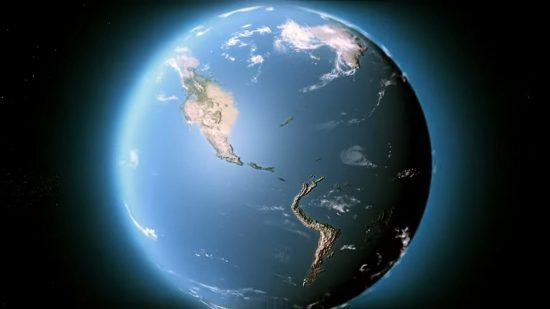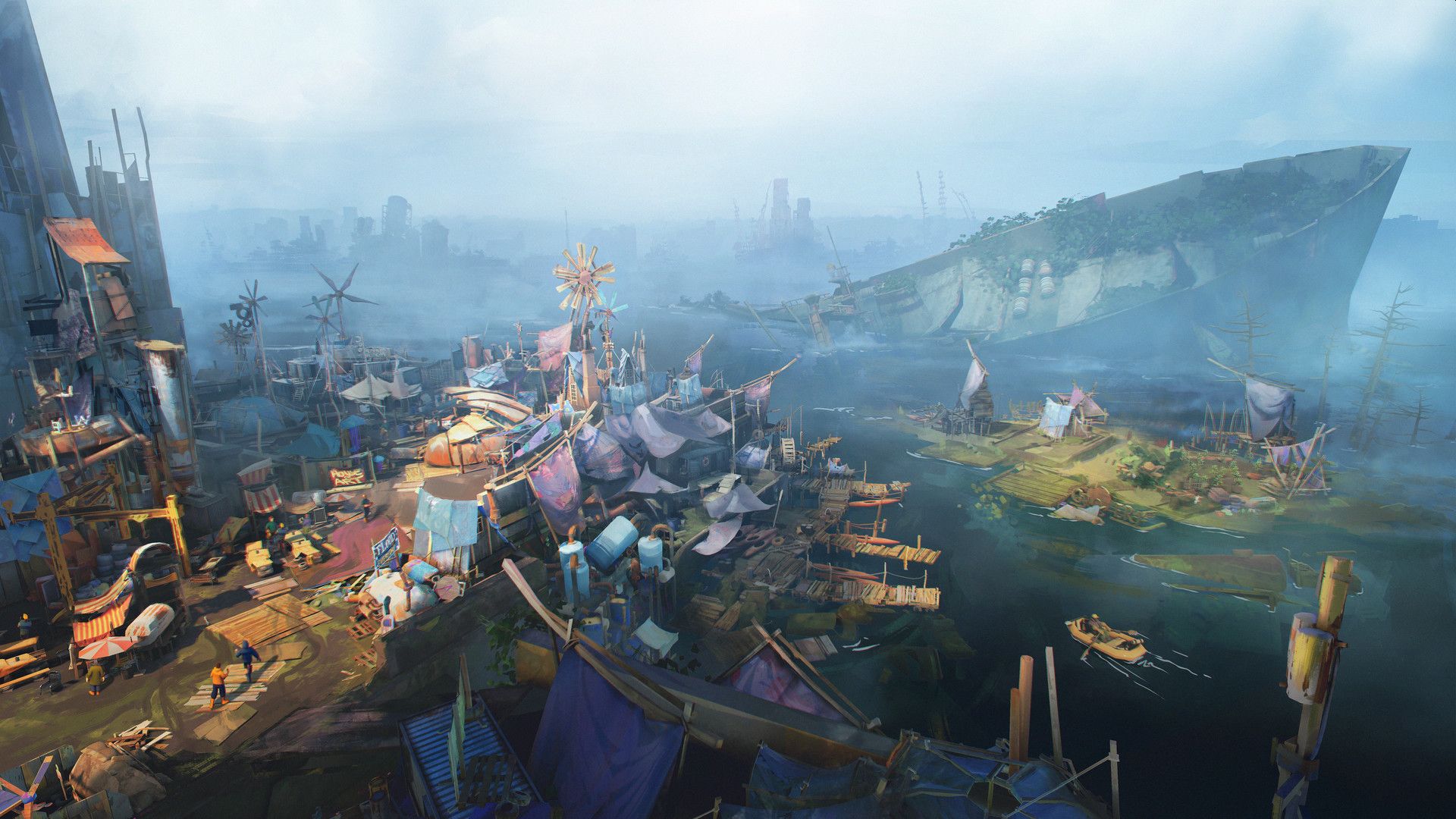On its Steam page, upcoming city-building game Floodland bills itself as “a society survival game set in a world destroyed by climate change.” The developer is Vile Monarch, a studio co-founded by Kacper Kwiatkowski and Grzegorz Mazur, who also co-created This War of Mine at 11 Bit Studios. When I strolled into my hands-on appointment at Gamescom 2022, however, I only knew to expect a then-unannounced city builder that would deal in some way with climate change – and I confess I was hoping for something a bit different.
We’ve written before on PCGamesN of how curious it is that so few games about building big, complicated things tackle one of the biggest downsides of doing so: the environmental impact. Whether it’s city builders, factory sims, or other industrial management games, there are very few experiences which present any reaction from the natural world to your pollution of it, or your consumption of its resources. That’s especially true if you want a realistic simulation; Factorio will send swarms of aliens to attack your factory as it belches out smoke, but where are the games that depict the processes and consequences of habitat loss, sea level rise, ocean acidification, and overall global warming as the player burns fossil fuels and goes logging in the wilderness?

Alas, that game will not be Floodland, but at least it aspires to show us the aftermath. Vile Monarch is clear that climate change “was a catalyst for a succession of events that led to the destruction of our world”. Soaring sea levels have replaced nations as we knew them with chains of islands, swamps, and isolated groups of survivors. I ask writer Alexander Stroganov why no one has attempted something so explicit before.
“The fact that it’s a little bit of a political issue, there are a lot of sceptics,” he replies. “Any delicate subject sometimes requires patience over time, and I think maybe it’s a little bit about maturing. But I think it’s catching on, finally, and that’s why. It was just a matter of time, and now is the time.” And yet, despite linking the collapse of civilisation to climate change, Stroganov insists that “we wanted to make a hopeful game, even though the setting is disastrous, catastrophic.
“The darkest thing about the game is how plausible it is. But at the same time, it’s not supposed to be [about] scaring people. That’s not the point. In the end, it’s a game about humanity. A lot of the issues that are in the game and in its post-catastrophic world can correspond to things that are happening right now. The game is supposed to be about hope, right? And whether it’s after it’s too late, or before it’s too late, it’s still about people and how we come together and build a society.”
I start my hands-on session by picking one of four factions with differing ideologies: I go for the crew of an offshore oil rig who include many engineers and scientists, but believe in “taking rational decisions quickly from a strong central authority” – or ‘new-world autocracy’, as their description summarises.
My crew starts on a small island, charged with finding a derelict power plant nearby. For a hopeful game, the atmosphere is mournful: ruined buildings and a rusted water tower are choked by wild undergrowth, and our modest camp is doused by frequent rain showers. Water is everywhere, not only bounding this damp island, but suffusing even what we see on dry land: the art style evokes watercolour paintings, with lots of drab pastel shades that feel like the colours are running, as if the game is viewed through tearful eyes. Even the user interface emerges from washy brushstrokes.
The first stage of rebuilding society is establishing sources of water, food, and shelter, and to do this we forage for supplies including rubbish, which is a rudimentary building material. Foraging has several different methods: I can designate forage zones to which citizens will be automatically sent; I can click on in-world ruins to gather from them directly; and I can place foraging buildings such that larger resource nodes fall within their catchment areas. After those nodes are depleted, the building serves no purpose – I need to scrap it and build another near some fresh nodes.
There’s no clear in-world explanation for why gathering methods must differ from one type of resource to another, and relocating the buildings is annoying – it feels a bit arbitrary and busyworky. It’s also quite poorly explained; I could’ve made a better start if I’d understood these methods sooner, as I lost a few villagers to thirst and starvation due to sputtering supply chains, leaving me without enough people to fill all the job vacancies as my village started to grow and unlock more complex buildings.
I make a comparison with Frostpunk – another city builder by 11 Bit set after an environmental apocalypse – and Stroganov says that besides the more hopeful tone, another point of difference is Floodland’s focus on exploration. Your burgeoning society will move between islands, and be challenged to cross or even explore water at varying depths. Stroganov draws comparisons with the Anno series, in which you expand to different parts of your main island, and then to different islands entirely, in search of resources. But there would always come a point, relatively early in each game, when the map was ‘completed’.
“Here, because of how difficult it is to go from flooded land to flooded land, and because the number of people is growing exponentially and there’s a limited number of people doing a limited number of things, exploring is going to be with you until almost the very end of the game. So it feels better paced, and gives the game depth.”
You’ll encounter other bands of survivors on these travels, add them to your growing community, and the focus will shift from survival to political and social issues. You’ll need to maintain the peace between differing factions, choosing your values and passing laws in accordance with them. You’ll also have to deal with those who may not share your vision for the future.
It’s in such labours that the hopeful tone, I imagine, can emerge more strongly. In my short session I didn’t quite make it to the power plant, as my emaciated village struggled to find equilibrium. Not a terrific success, then, and I leave my hands-on feeling a little defeated. But the gorgeous art style, all-too-plausible premise, and possibility of more engaging mechanics later in the game have piqued my interest. You can check out these exciting city-building games and management games while you wait for the Floodland release date on November 15, 2022.



